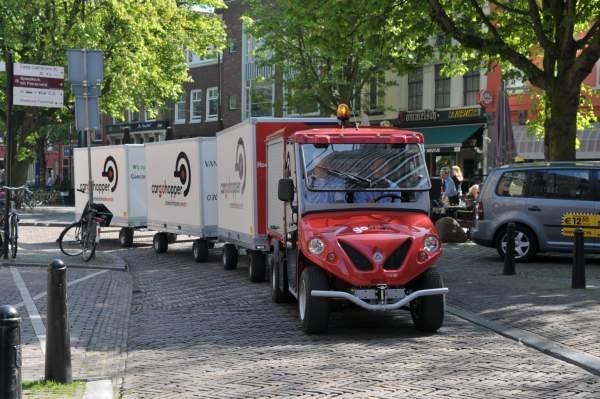Part 3: Smart Multimodal Urban Freight and Logistics -> Discussion


Part 3 (SIS 35): Smart Multimodal Urban Freight and Logistics
Discussion (by Laetitia Dablanc)

Wen Tung Chiu presented the issues of freight planning in Singapore, using case studies related to the port and to construction freight. Moshe Ben-Akiva presented sensing and online analytics as new methodologies for delivery optimization. Then Marcel Huschebeck discussed service-oriented urban logistics and the importance of cooperation in urban freight solutions. Sanggyun Kang discussed e-commerce deliveries in Seoul, Korea, and new ways to cope with them. Matthias Winkenbach introduced new delivery models and new concepts and delivery vehicles. Finally, Joelle Van Den Broek showed us her roadmap for smart mobility within the Connected and Automated Transport Living Lab.
A round-table with all speakers was then organized to answer questions from the audience. In particular, the very fast development of e-commerce and on-demand deliveries was debated, as it seems to increase freight flows in cities considerably. Technological developments facilitate the optimization of urban supply chains, automation and connectivity in the warehouses and for freight vehicles change delivery services for the better. Companies, from start-ups to very large groups, are designing new vehicles to deliver goods in cities, from cargo-bikes to urban barges to drones. However, costs are sometimes an obstacle to the full development of innovative new technologies for city logistics. Also, the round-table led to a discussion on the role of government, local and national, to better organize freight and logistics.
